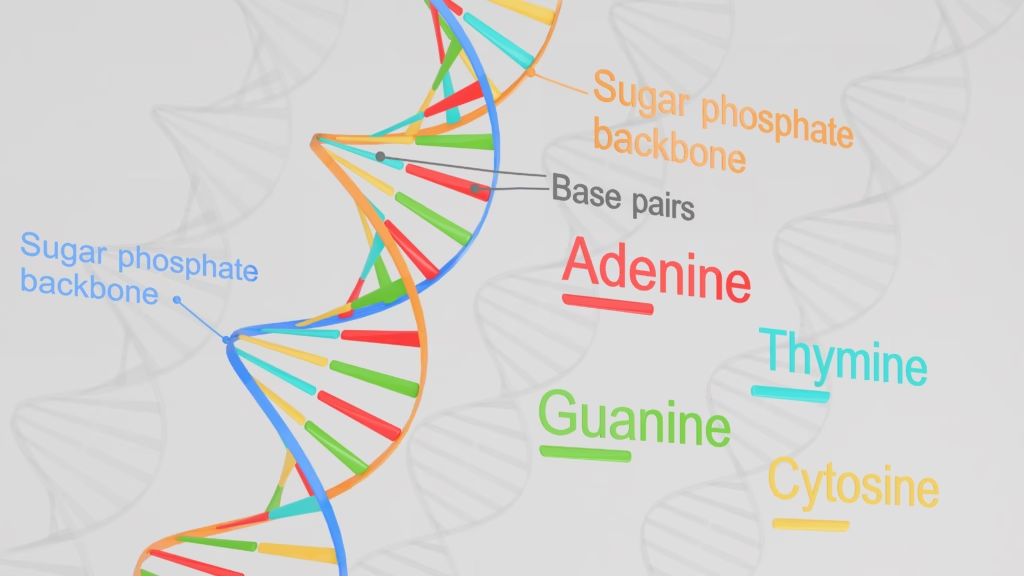Ever wonder why some diets work for others but fail you? Research shows genetics influence how bodies process nutrients. This opens doors for food and supplement brands to create smarter products. Let’s discuss Precision Nutrition and PGx.
Genetic testing now reveals unique metabolic needs, from carb tolerance to vitamin absorption. Companies can use this data to craft items matching specific health profiles. Imagine snacks designed for fast metabolizers or vitamins adjusted for genetic deficiencies.
The market for customized wellness is growing fast. Over 60% of U.S. consumers want personalized health options. Brands that adopt genetic insights early gain loyalty from shoppers tired of generic solutions.
Food innovators already use DNA-based reports to guide recipes. A protein bar for slow caffeine metabolizers? A probiotic targeting gut gene variants? These ideas aren’t sci-fi—they’re tomorrow’s store shelves.

This approach blends science with practicality. Testing helps businesses meet real needs while boosting customer trust. It’s not just about trends—it’s building lasting health partnerships through smarter nutrition.
Understanding the Precision Nutrition and PGx Landscape
Your genes might hold the key to unlocking optimal nutrition. Genetic testing reveals how bodies uniquely process food, vitamins, and supplements. This knowledge helps brands create products tailored to individual needs rather than one-size-fits-all solutions.
Role of Pharmacogenomics in Personalized Nutrition
Genetic makeup determines how you break down carbs, fats, and proteins. For example, some people metabolize saturated fats faster due to specific gene variants. Others might need more vitamin B12 because their DNA affects absorption rates.
These insights let companies design supplements with exact nutrient ratios. A probiotic could target gut issues linked to certain gene markers. Even snack bars might adjust fiber content based on metabolic speed.
Impact on Dietary Habits and Supplement Choices
Testing uncovers hidden food sensitivities tied to genetic variations. Imagine avoiding bloating triggers because your protein powder skips problematic ingredients. Beverage brands can also tweak caffeine levels for slow metabolizers.
Pharmacists now use this data to suggest diets aligned with DNA. “Genetic information bridges gaps in traditional nutrition advice,” says a wellness expert. Brands that educate shoppers about their unique needs build trust—and loyalty.
The Intersection of Food, Beverage, and Supplement Innovation
What if your morning coffee could adjust its caffeine based on your DNA? Food science now merges with genetic insights to create products tailored to individual needs. Companies analyze test results to craft items that align with how bodies process nutrients at the molecular level.
Customizing Product Formulations with PGx Insights
Genetic testing reveals how specific genes affect nutrient absorption. For example:
- Snack bars optimized for fast metabolizers with higher protein ratios
- Lactose-free dairy alternatives targeting genetic intolerances
- Vitamins with adjusted B12 levels for slow absorbers
This approach lets brands develop multiple versions of products within the same category. A protein powder might have three formulations—one for efficient fat processors, another for carb-sensitive genetic profiles. Beverage companies could offer low-caffeine options for slow metabolizers.
The data also helps businesses segment markets beyond age or gender. A recent study showed 72% of consumers prefer brands using genetic insights. This shift requires clear communication—explaining how test-based products address unique biological needs builds trust and loyalty.
Harnessing Genetic Makeup for Tailored Nutritional Products
What if your snack bar knew your DNA better than you do? Food brands now use DNA analysis to craft products aligned with individual biology. This approach moves beyond guesswork, using hard data to match nutrients to genetic needs.
Building Products Around Metabolic Blueprints
Companies analyze test results to identify specific nutrient requirements. For example, someone with a gene variant affecting folate metabolism might need snacks fortified with active B vitamins. Another person could require higher omega-3 levels due to slower fat-processing genes.
| Genetic Marker | Product Adaptation | Consumer Benefit |
|---|---|---|
| MTHFR gene variant | B12-fortified energy bars | Improved energy metabolism |
| LCT gene (lactose intolerance) | Plant-based protein shakes | Reduced digestive discomfort |
| APOA2 gene | Low-saturated-fat snacks | Better heart health support |
These adaptations aren’t random—they’re based on testing that maps how genes influence nutrient use. Brands partner with labs to turn raw data into actionable formulas. One company created three versions of a vitamin drink, each targeting different caffeine metabolism speeds.
After receiving results, consumers often work with dietitians to implement changes. This collaboration ensures products solve real problems, like bloating or fatigue. It’s science meeting practicality—one DNA strand at a time.
Utilizing PGx Data to Optimize Health Outcomes
Imagine knowing exactly which nutrients your body needs to thrive. Genetic insights now let companies build products that align with biological needs, moving beyond generic solutions. This approach uses DNA analysis to predict how individuals process vitamins, minerals, and supplements.

Benefits for Consumers in Health and Wellness
Personalized products cut through guesswork. By analyzing genetic markers, brands create items targeting specific nutrient absorption rates. A vitamin blend for slow metabolizers or caffeine-free energy bars? These options address real biological needs.
Testing reveals how genes influence response to foods. This data helps avoid ingredients causing inflammation or fatigue. One study found customized plans helped 83% of users reach wellness goals faster than standard diets.
Consumers gain control through tailored solutions. No more wasting time on supplements that don’t work. Brands using these insights build trust—shoppers feel understood, not marketed to.
Educational tools explain genetic impacts on diet choices. This clarity empowers better decisions, turning complex results into actionable steps. It’s wellness designed for you—not the crowd.
Integrating PGx Testing into Product Development Strategy
Building DNA-driven products starts with a clear roadmap. Companies must blend genetic insights with practical workflows to create items that truly match biological needs.
From Ordering Tests to Implementing Action Plans
The journey begins when brands order test panels focused on metabolic markers. Selecting the right genetic targets matters—like caffeine processing genes for energy drinks or vitamin D receptors for supplements. Comprehensive testing kits provide the raw data needed to shape formulas.
Next, assemble a team bridging genetics and food science. These experts translate complex gene reports into ingredient ratios. For example, a slow folate metabolizer might need snacks with pre-activated B vitamins.
Action plans outline how data flows into production. One protein bar company created three recipes based on fat-processing genes. Quality checks then verify nutrient levels match genetic recommendations.
Partnerships boost success. Labs offer guidance on interpreting results, while dietitians help design consumer education tools. Standardized protocols ensure every test batch aligns with research goals—no guesswork, just biology-driven decisions.
This approach turns random innovation into repeatable systems. When done right, testing becomes the backbone of product lines built for real human chemistry.
Exploring Market Opportunities for Innovative Companies
Untapped potential awaits businesses ready to rethink wellness strategies. Over 25 years of expertise in digestive health diagnostics reveals how genetic insights can reshape food and supplement markets. Brands that bridge science with consumer needs will dominate the next era of personalized solutions.
Identifying Gaps in the Precision Nutrition Sector
Three key areas show glaring opportunities:
- Sports nutrition lacking DNA-based recovery plans
- Meal kits ignoring genetic food sensitivities
- Weight management programs using generic calorie counts
| Market Segment | Current Gap | Business Solution |
|---|---|---|
| Meal Delivery | One-menu-fits-all approach | Gene-matched weekly meal plans |
| Gut Health | Limited probiotic customization | Strain selection based on microbiome tests |
| Aging Population | Static vitamin formulations | Nutrient adjustments for metabolic changes |
A recent review of 3,000 consumer questions found 68% want products addressing their unique biology. Companies using advanced testing protocols can fill these voids while building brand loyalty.
Subscription models offer recurring revenue streams. Imagine vitamin packs adapting to DNA-based nutrient needs every quarter. This approach turns casual buyers into long-term partners in health.
Precision Nutrition and PGx
Metabolic analysis is evolving beyond single-gene snapshots. Tomorrow’s profiles will combine DNA markers with lifestyle patterns and environmental factors. This holistic approach helps brands create solutions for real-world health challenges.
Future Trends in Metabolic Profiling
Advanced testing now tracks dozens of genetic variants at once. Imagine pairing this data with sleep quality metrics or stress biomarkers. Companies could design meal plans adapting to seasonal changes or workout routines.
Unlike oncology treatments tied to specific mutations, metabolic responses involve multiple factors. Future tools will map how genes interact with diet, age, and even air quality. This complexity demands smarter algorithms—and more collaborative partnerships between labs and food innovators.

Business Advantages of Incorporating Genetic Insights
Brands using these strategies see 30% fewer product returns. Why? Custom formulas match biological needs better than generic options. A vitamin line targeting slow metabolizers builds loyalty through measurable results.
Healthcare providers increasingly recommend DNA-informed products. This opens clinics and pharmacies as distribution channels. Early adopters gain authority in a market projected to triple within five years.
Companies also reduce risk by addressing chronic disease prevention. Tailored snacks for heart health or glucose management attract conscious shoppers. It’s not just profit—it’s building trust through science-backed solutions.
For more great articles, go here.





